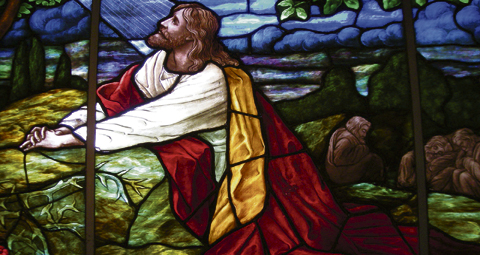March 11 | ![]() 0 COMMENTS
0 COMMENTS ![]() print
print

God will get to us, one way or another
Fr Ronald Rolheiser
In a deeply insightful book, The Grace of Dying, Kathleen Dowling Singh shares insights she has gleaned as a health professional from being present to hundreds of people while they are dying. Among other things, she suggests that the dying process itself, in her words, ‘is exquisitely calibrated to automatically produce union with Spirit.’ In essence, what she is saying is that what is experienced by someone in the final stages and moments of dying, particularly if the death is not a sudden one, is a purgation that naturally lessens the person’s grip on the things of this world as well as on his or her own ego so as to be ready to enter into a new realm of life and meaning beyond our present realm of consciousness. The dying process itself, she submits, midwifes us into a wider, deeper life.
But that does not come without a weighty price tag. The dying process is not a pleasant one. Most of us do not die peacefully in our sleep, comfortable, dignified, and serene. The norm rather is the kind of death that comes about by ageing or by terminal disease. What happens then is not comfortable, dignified, or serene. Rather there is a painful, sometimes excruciating, almost always humiliating, breakdown of the body. In that process we lose basically everything that is dear to us: our health, our natural bodily beauty, our dignity, and sometimes even our mind. Dying is rarely beautiful, save in another aesthetic.
So how is the process of dying calibrated to help ease our grip on this world and more gracefully move on to the next world? Dying matures the soul. How so?
Writing about ageing, James Hillman poses this question: Why have God and nature so constructed things that as we age and mature and are finally more in control of our lives, our bodies begin to fall apart and we need a bevy of doctors and medicines to keep functioning. Is there some wisdom in the very DNA of the life-process that mandates the breakdown of physical health in late life? Hillman says, yes. There’s an innate wisdom in the process of ageing and dying—the best wines have to be aged in cracked old barrels. The breakdown of our bodies deepens, softens, and matures the soul.
Jesus teaches us this lesson, and it is a truth He Himself had to accept, with considerable reluctance, in His own life. Facing His own death the night before He died, prostrate on the ground in Gethsemane (above), He begs His Father: “Let this cup pass from me! Yet, not my will, but yours, be done.” In essence, He is asking God whether there is a road to glory and vision of Easter Sunday without passing through the pain and humiliation of Good Friday. It seems there isn’t. Humiliation and depth are inextricably linked. After His Resurrection, talking with His disciples on the road to Emmaus, He says to them: “Wasn’t it necessary that the Christ should so suffer?” This is more a revelation of truth than a question. The answer is already clear: The road to depth necessarily passes through pain and humiliation. Kathleen Dowling Singh and James Hillman simply format this positively: Pain and humiliation are naturally calibrated to move us beyond what is more superficial to what is deeper. Pain and humiliation, and there is invariably a certain dying in these, help open us up to deeper consciousness.
And we know this already from common sense. If we honestly assess our own experience we have to admit that most of the things that have made us deep are things we would be ashamed to talk about because they were humiliating. Humiliation is what humbles and deepens us. Our successes, on the contrary, which we do like to talk about, generally produce inflations in our lives.
The famed psychologist/philosopher, William James, submits that there are realms of reality and consciousness that lie beyond what we presently experience. All religion, not least Christianity, tells us the same thing. But our normal consciousness and self- awareness literally set up boundaries that prevent us from going there.
Normally, for us, there’s this world, this reality, and that’s all! The dying process helps break open that contraction in our perception, awareness, and consciousness. It is calibrated to open us up to a reality and a consciousness beyond what we presently deem as real.
But there are other paths to this too, outside the process of dying. Prayer and meditation are meant to do for us exactly what the dying process does. They too are exquisitely calibrated to loosen our grip on this world and open our awareness to another. As Ms Singh puts it: “The path to the transpersonal realms, which the saints and sages of every age have known through the practice of meditation and prayer, appears to be the same transformative path that each of us traverses in the process of dying.”
That’s consoling: God is going to get us, one way or the other.
— Fr Ronald Rolheiser is a priest and member of the Missionary Oblates of Mary Immaculate. He is president of the Oblate School of Theology in San Antonio, Texas. Visit his website at www.ronrolheiser.com











